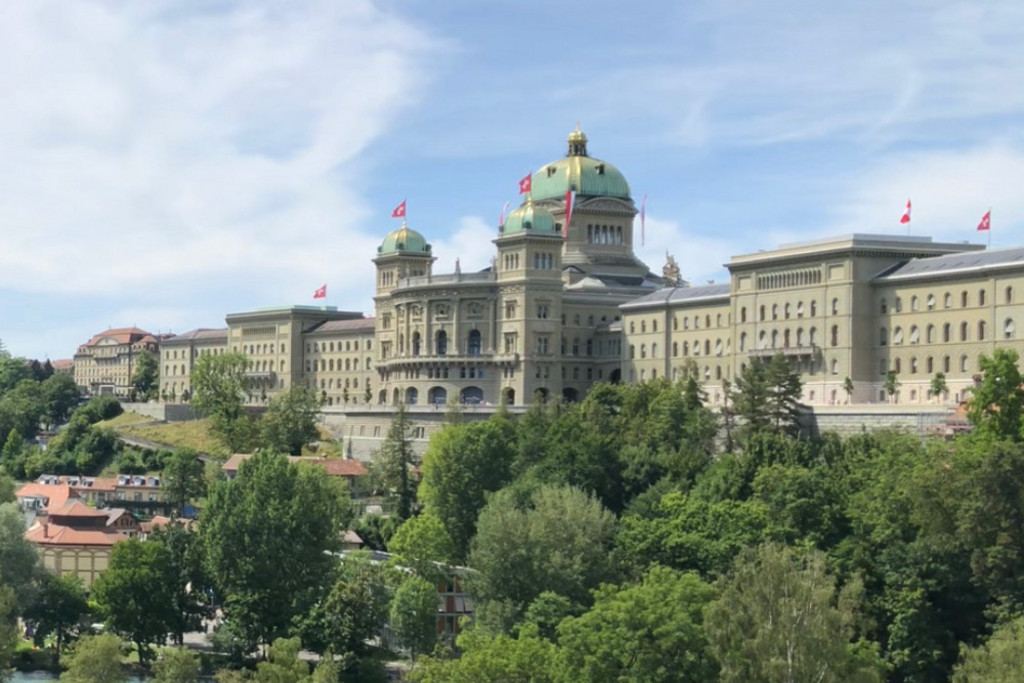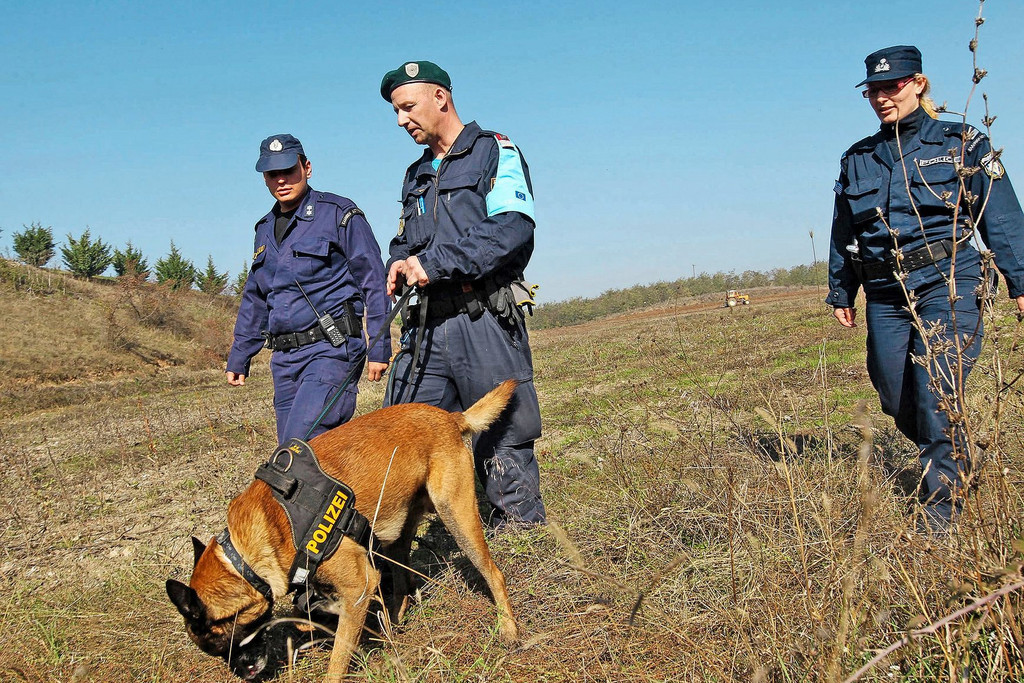The arms deal of the Federal Department of Defence, Civil Protection and Sport (DDPS) was hit by turbulence from the outset. The Gripen ran into further difficulties during the referendum campaign owing to various blunders and poor communication. In the end, the purchase of these Swedish fighter jets – as a replacement for 54 Tiger jets – was rejected at the referendum held on 18 May 2014 with 53.4 percent opposing the proposal.
Supporters had argued that the new aircraft, together with the existing 32 F/A-18s, were the absolute minimum requirement to ensure the security of the airspace. The Ukraine crisis was also brought into play towards the end of the referendum campaign and was supposed to provide evidence of the insecure world in which we live. The opposition – the Social Democrats, the Greens and the Group for a Switzerland without an Army (GSoA), who had called the referendum against the bill – argued that there were billion-franc shortfalls for urgent federal government initiatives, such as education, transport and the old-age and survivors’ insurance scheme. It was also contended that the Swiss Air Force was already too big and that the F/A-18s were sufficient for policing the airspace.
Change in trend over military policy?
There had never been a No outcome at a referendum over military issues. The traditional loyalty towards the army failed to materialise on this occasion. This is explained by various factors, including some that go back years. For example, doubt was cast over the selection procedure after the decision in favour of the Gripen model. Many conservative politicians also questioned the quality of the aircraft, which led to major delays in the parliamentary procedure.
The conservatives nevertheless managed to close ranks to some degree. However, a conservative committee opposing the Gripen was set up, mainly supported by Green Liberals. This saw the No camp extend far beyond army-sceptical groups and left-wing parties. Financial policy concerns were combined with issues such as whether national defence should focus more systematically on more realistic threats like cyber-attacks, terrorism, major environmental disasters and organised crime, etc., instead of traditional warfare.
Federal Councillor Maurer acted foolishly
Defence Minister Ueli Maurer also came under fire after the referendum. Both supporters and opponents of the Gripen jets believed he had led an inept referendum campaign. It emerged that Maurer had taken advice from Sweden over his strategy. He made sexist jokes, was abusive towards the media and portrayed the Gripen referendum as a moment of destiny for the army, which even provoked anger among supporters of the bill. It remains to be seen what will now happen. One thing is for certain: the rejection of a new fighter jet does not represent a rejection of the army but it does have a lot to do with the issue of the future orientation of Swiss national defence.
JÜRG MÜLLER is an editor with the “Swiss Review”
Further referenda held on 18 May 2014
Minimum wage had no chance
The trade unions suffered a major setback as their minimum wage initiative was overwhelmingly quashed with 76.3 percent voting against it. The proposal had sought to set the statutory minimum wage at 22 Swiss francs an hour or around 4,000 francs a month. The trade unions did not even succeed in fully mobilising potential left-wing voters as the initiative was rejected even more emphatically than the Young Socialists’ 1:12 initiative against top salaries last November. The majority of Swiss people are clearly opposed to state intervention in salary policy.
In favour of GPs and against paedophiles
On the other hand, the new constitutional article which obliges federal government and the cantons to ensure the provision of basic medical care by promoting general practitioners was overwhelmingly adopted with 88 percent of votes cast for it. The issue had initially been raised by an initiative put forward by the medical profession which was later withdrawn in favour of a Federal Council counterproposal.
The paedophile initiative also addressed an issue of widespread concern. It was approved by 63.5 percent of voters. Anyone convicted under the law of sexual offences against children or dependents will automatically be prohibited from working with children for life in future. Those opposed to the proposal, who contested that it was disproportionate, failed to convince the electorate with their arguments.
Nuclear power station can continue to operate
The issue of nuclear power appeared on the referendum agenda for the first time since the Fukushima nuclear disaster in 2011, albeit only in the canton of Berne. A popular initiative had sought to immediately decommission the 40-year-old Mühleberg nuclear power plant near the city of Berne which constantly faces criticism over sometimes serious safety deficiencies. The proposal was nevertheless rejected by 63.3 percent of voters. Bernische Kraftwerke (BKW) had already decided before the referendum to close down the reactor in 2019. In the wake of Fukushima the Federal Council resolved to withdraw from nuclear power in principle, but the new energy policy is only at the draft stage. �(JM)





![[Translate to en:]](/fileadmin/_processed_/d/2/csm_Revue_202204_Huehnerfarm_SH-Reportage_3074_7901ca94df.jpg)



Comments